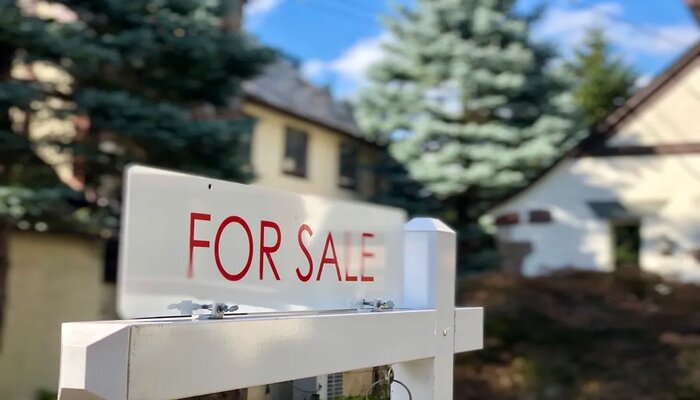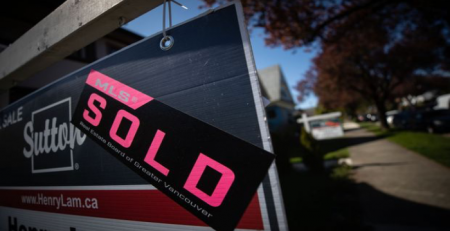Buy or sell first? Softening housing market gives owners options
[Globe and Mail – August 4, 2022]
Last summer, when the Salters sold the Calgary home they had been renting out since their move to the quiet Cariboo region of British Columbia a few years earlier, the Calgary market was hot.
This year, when they decided to move back to the city, the COVID-19-inspired buying spree in rural Canada had increased the value of their Cariboo property significantly, while the Calgary real estate market was decidedly cooler.
“The market drastically slowed after the first interest rate hike and Calgary was transitioning from a crazy hot market to something a little more reasonable,” says Paula Salter.
Not knowing how long it would take to sell their lakefront home on Big Lake, 50 kilometres east of Williams Lake in the B.C. Interior, they opted to sell first and then find a new home in the Alberta city.
“We wanted a clean, unconditional offer so we had an advantage if we were going into a multiple offer situation in Calgary,” she explains.
They were also keenly aware that interest rates are on the rise. In July, the Bank of Canada raised its benchmark rate by a full percentage point, from 1.5 per cent to 2.5 per cent – the fourth increase this year and the largest since August, 1998.
“Mortgage rates were definitely a factor in wanting to sell first so we could buy fast and be clear on what to expect financially,” she says.
Inflation, interest rates and talk of a global recession have the country’s real estate markets in flux, leaving buyers and sellers wondering: What is the best course of action to take in these quickly changing times? Should they buy first? Or sell?
“Certainly over the past few years, the pandemic years specifically, the market has been crazy and lots of multiple offers were happening all across the country – people were being forced to buy first,” says Stacey Evoy, president of the Ontario Real Estate Association and a real estate broker at Royal LePage Triland Realty in London, Ont. “It put people in an uncomfortable situation, but they knew that their house was going to sell.”
Most homes were selling over their asking price, so the odds were good sellers would not have an issue finding a buyer for at least the amount they were asking, she says.
Now, though, the market is transitioning toward a more traditional one, with “more choice and less competition,” she says.
It’s a more balanced market that leaves buyers more room to weigh their individual financial situation and risk tolerance and decide which is right for them – buying first or selling, she explains.
“There’s definitely not the same upward pressure on buying that there has been for the past two-and-a-half years,” Ms. Evoy says.
“I think buyers and sellers are both being more cautious and we’re getting back to where sellers need to see where they’re going to land on the listing of the house before they can proceed with where they’re going on their purchase.”
Average prices are still significantly higher than they were pre-pandemic, she points out, and the majority of homes are still selling above the asking price.
“It’s still a good market, but a little bit less crazy than we’ve been in the last two years,” she says. “I would say that we’re getting back to a healthy market, one where both sellers and buyers have advantages. It’s more of what we would call a fair market.”
Interest rate increases have been quick to cool demand and bring prices down from historic highs that peaked in March. Sales are down in both of Canada’s hottest markets, Toronto and Vancouver.
Market forces aside, each buyer has a unique circumstance and the best decision on whether to buy or sell first should be made in consultation with your realtor and mortgage professional, says Craig Munn, spokesman for the Real Estate Board of Greater Vancouver.
Buyers need to fully understand their financial situation and assess the risks involved in any decision, he says.
“There’s risk and uncertainty for a lot of people if they’re going to look to purchase a home before they sell. They need to assess that risk against any potential benefit,” Mr. Munn says.
As the market is experiencing changes, it’s important for buyers not to overextend themselves, he says. For those who need the money from their home sale for their purchase, the financial balance is more critical, he adds.
“It’s harder to estimate perhaps what your home will sell for than it was, say, a few months ago, as well as how long it’ll take for your home to sell. That changing environment makes it harder to estimate what that sale may look like and when it may happen.”
The market has come down from record levels to more typical sales levels, he adds.
“There’s a little bit more selection for homebuyers to choose from and a little bit more time to make your decisions on the buying side,” he says. “On the selling side, it means it’s taking a little longer for homes to sell and you really need to look at the price you’re setting for your home as well, to ensure that it’s aligned with the current market conditions.”










